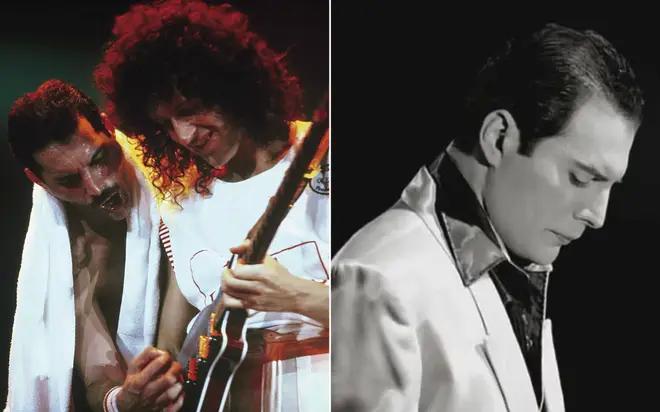Few bands have left a mark on the world of music quite like Queen. Their iconic sound, led by the unparalleled Freddie Mercury, continues to resonate with generations. But behind the dazzling performances and anthems that defined an era lay a poignant story of courage, as Mercury battled a debilitating illness during his final years.
Brian May, Queen’s legendary guitarist, recently offered a glimpse into this period, sharing memories of his bandmate’s strength and unwavering spirit in the face of adversity. Speaking with AXS TV, May revealed that despite facing his mortality, Freddie Mercury never succumbed to despair. “He was very undramatic about it,” May shared, adding: “I never ever saw him cry or go you know self-pity.”
 Brian May recently recalled Freddie Mercury&squot;s final days, saying he "never ever saw him cry".
Brian May recently recalled Freddie Mercury&squot;s final days, saying he "never ever saw him cry".
This resilience, May emphasized, was an inherent part of Mercury’s character, a testament to his unwavering dedication to his art. “He never did that, he was like ‘let’s just do it, let’s keep doing stuff’. Freddy was always inspiring. If he was here now, we’d be doing what we always do I’m sure.”
Even as his health deteriorated, Mercury’s commitment to music never wavered. He continued to work with Queen, pouring his heart and soul into their final album, “Made In Heaven.” This poignant collection of songs serves as a bittersweet reminder of Mercury’s extraordinary talent and the enduring power of music.
“We made the last album, the Made In Heaven album with the tracks that Freddie had left us to play with and it became a real labour of love because he left some lovely little bits and pieces,” May recalled.
The band’s final recording sessions together took on a profound significance. Despite the challenging circumstances, the studio became a sanctuary for Mercury, a place where he could continue to create and connect with his passion.
“He was very undramatic about it,” May shared. “I never ever saw him cry or go you know self-pity.”
 Even though Freddie battled a dreadful disease, Brian May "never ever saw him cry".
Even though Freddie battled a dreadful disease, Brian May "never ever saw him cry".
Mercury’s courage was evident even as he grappled with the physical limitations imposed by his illness. His determination to keep performing, to keep sharing his gift with the world, shone through.
This dedication is heartbreakingly evident in his final filmed performance, the music video for “These Are The Days Of Our Lives.” Despite his visible frailty, Mercury sings with a raw emotion that transcends the screen, a testament to the indomitable spirit that burned within him until the very end.
In the aftermath of Mercury’s passing, Queen’s remaining members faced the daunting task of navigating a future without their iconic frontman. It was a loss so profound that they initially decided to disband, their musical journey seemingly over.
“We’d always said that if one of us goes, that’s it,” Brian revealed. “So Roger and I both went out kind of grieving to the max and saying it’s over, we don’t even want to talk about it for quite a long time.”
Yet, the music they created, the legacy they built together, proved too powerful to abandon. Queen eventually returned to the stage, with Adam Lambert taking on the formidable task of filling Mercury’s shoes.
It’s a testament to both Lambert’s talent and the enduring power of Queen’s music that they have been able to carve out a new chapter, honoring their past while embracing a new dynamic.
“The songs are not fossils, they’re alive and evolving with Adam which is great. Sometimes he blows my mind,” May said.
May acknowledges the comparisons to Mercury are inevitable, but emphasizes that Lambert brings his own unique energy and perspective to the band. It’s this willingness to evolve, to honor their past while embracing new possibilities, that has allowed Queen’s music to remain relevant and resonate with audiences across generations.
 Brian May and Roger Taylor have worked hard to preserve Queen's legacy after Freddie's death. (Photo by Dave Hogan/Hulton Archive/Getty Images)
Brian May and Roger Taylor have worked hard to preserve Queen's legacy after Freddie's death. (Photo by Dave Hogan/Hulton Archive/Getty Images)
Freddie Mercury’s final days were a poignant reminder that even in the face of unimaginable challenges, the human spirit can prevail. His legacy extends far beyond the music he created, serving as an enduring inspiration to artists and dreamers worldwide. His story reminds us to embrace every moment, to live and create with passion, and to never let the light within us dim, even in the face of darkness.


